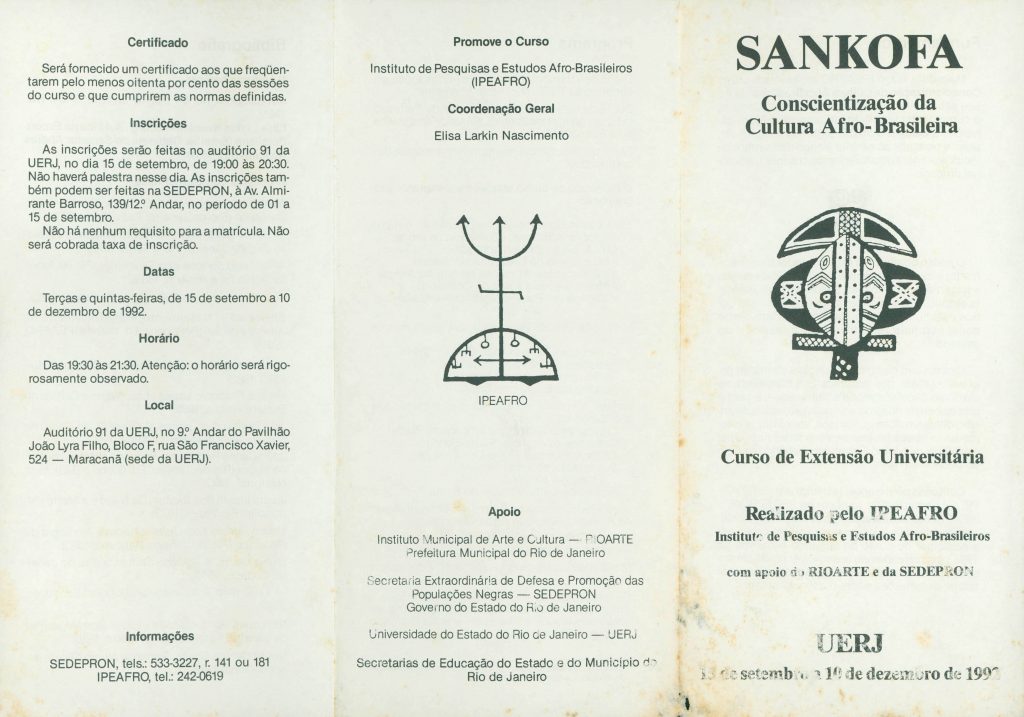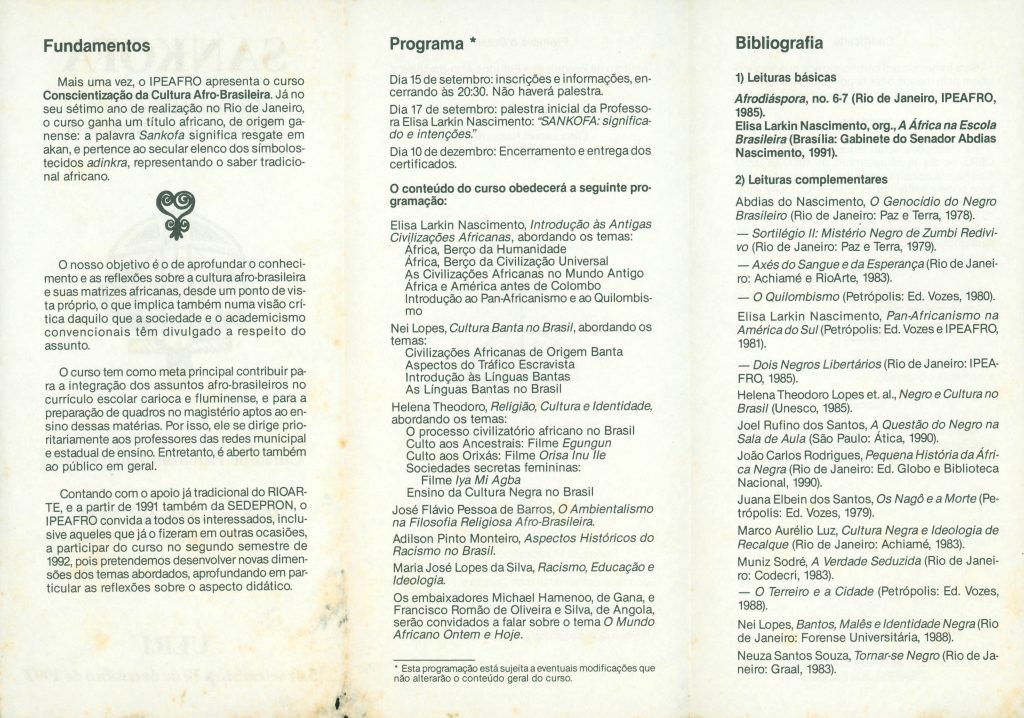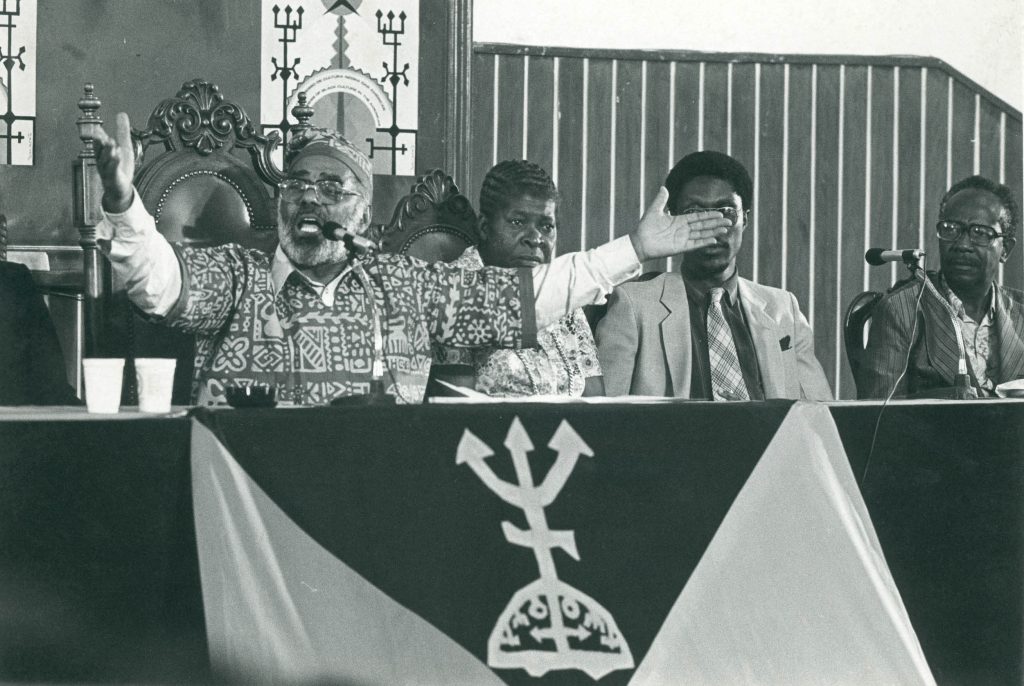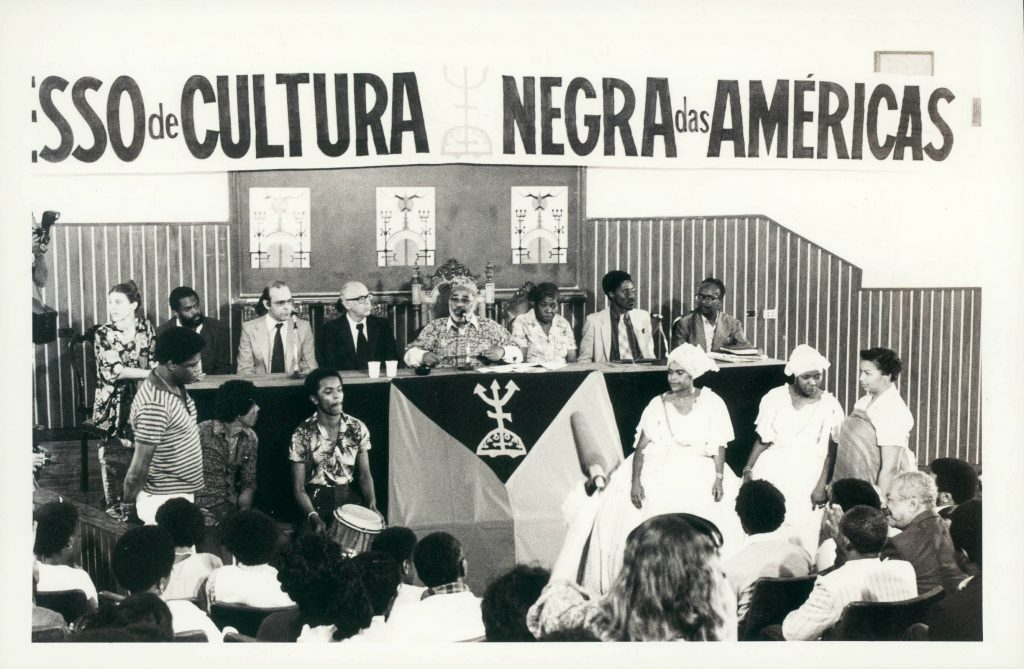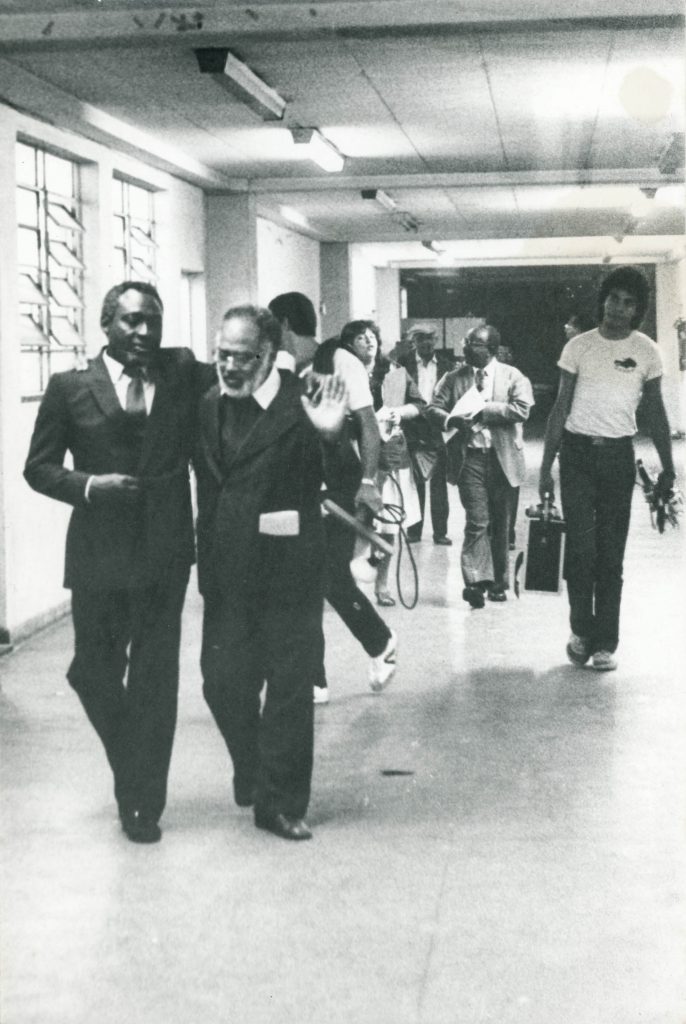
The history of Ipeafro
By Elisa Larkin Nascimento
The partnership with Itaú Cultural brings the Instituto de Pesquisa e Estudos Afro-Brasileiros [Afro-Brazilian Studies and Research Institute] (Ipeafro) and its founder, Abdias Nascimento, back to their origins. On the initiative of Abdias, born in Franca, state of Sao Paulo, and with the support of black students and Cardinal Paulo Evaristo Arns, Ipeafro was created at the Pontifícia Universidade Católica de São Paulo (PUC/SP) in 1981.
It was conceived as a center of reference and studies based on the archives of Abdias, who was returning to Brazil after 13 years of exile. Here we held the 3rd Congress of Black Culture in the Americas, the first time when Brazil received a representative from the African National Congress, Nelson Mandela, as well as artists and intellectuals from several countries in Central and South America, the Caribbean and several states across Brazil. Before that, we had participated in a protest – on the steps of the Municipal Theater in 1978 – which gave rise to the Unified Black Movement.
The research led us to quilombola communities in several states. We offered a course called Afro-Brazilian Culture Awareness, which continued in Rio de Janeiro under the name Sankofa and later evolved into Sankofa’s Forum of Affirmative Education.
The first years of Ipeafro coincided with Abdias’s frantically busy period as a congressman while Sao Paulo was staging decisive moments. One of these events took place in 1983, when the Brazilian Bar Association (OAB), under the leadership of black lawyers, promoted a forum on the unenforceability of the Afonso Arinos Act and the need for a new legal provision to criminalize racism. This would then back the Bill No. 1661/1983 submitted by Abdias. Sao Paulo also witnessed the appearance of the Afro-Brazilian National Congress, spearheaded by poet Eduardo de Oliveira, a great friend and first contributor to Ipeafro.
In earlier times, Sao Paulo housed the Brazilian Black Front, which became known to Abdias at a young age. He took part in a couple of their demonstrations when he was a soldier. The resistance to racism earned him the exclusion from the Army and a conviction in absentia, a result of which he was sent to the Carandiru penitentiary in 1941. There he created the Teatro do Sentenciado [Theater of the Convict] and left his testimony about prison in the book Submundo [Underworld], still unreleased. Another book written in prison in Sao Paulo, the novel titled Zé Capetinha [Jack Devil] beautifully depicts the memories of a young black man in the early 20th century recalling his childhood in the town of Franca and his adolescence in the capital city.
Sao Paulo was not lenient with young Abdias and usually neither is it with the black youth until today. So, maybe it is not surprising to know that the city has remained indifferent in the period of more than a decade during which Ipeafro has held exhibitions on the life and work of Abdias in various cities and states nationwide plus New York, U.S., and Lagos, Nigeria. Only now, thanks to the unprecedented gaze of Itaú Cultural, we have reached the land that granted Abdias the status of a Sao Paulo citizen in 1996. For Ipeafro, it has been a pleasure to work alongside the institute’s staff, who demonstrates its commitment to adopt a new perspective to approach the racial issue and new forms of human relationship.
Elisa Larkin Nascimento is the chief executive officer of the Instituto de Pesquisa e Estudos Afro-Brasileiros [Afro-Brazilian Studies and Research Institute] (Ipeafro), an institution established in 1981 by Abdias, her husband, and her own support.
Seção de vídeo
Ipeafro: a dream, an idea

(...) A great part of my colleagues does not want to know what the black people really have to bear. They want to live in the illusion of the 'racial democracy.' They want to perpetuate this false image of an egalitarian Brazil, of a 'Brazil, the paradise of races.'
excerpt taken from the book "Abdias Nascimento – Grandes Vultos que Honraram o Senado" [Abdias Nascimento – Great Figures that Honored the Senate], by Elisa Larkin Nascimento
